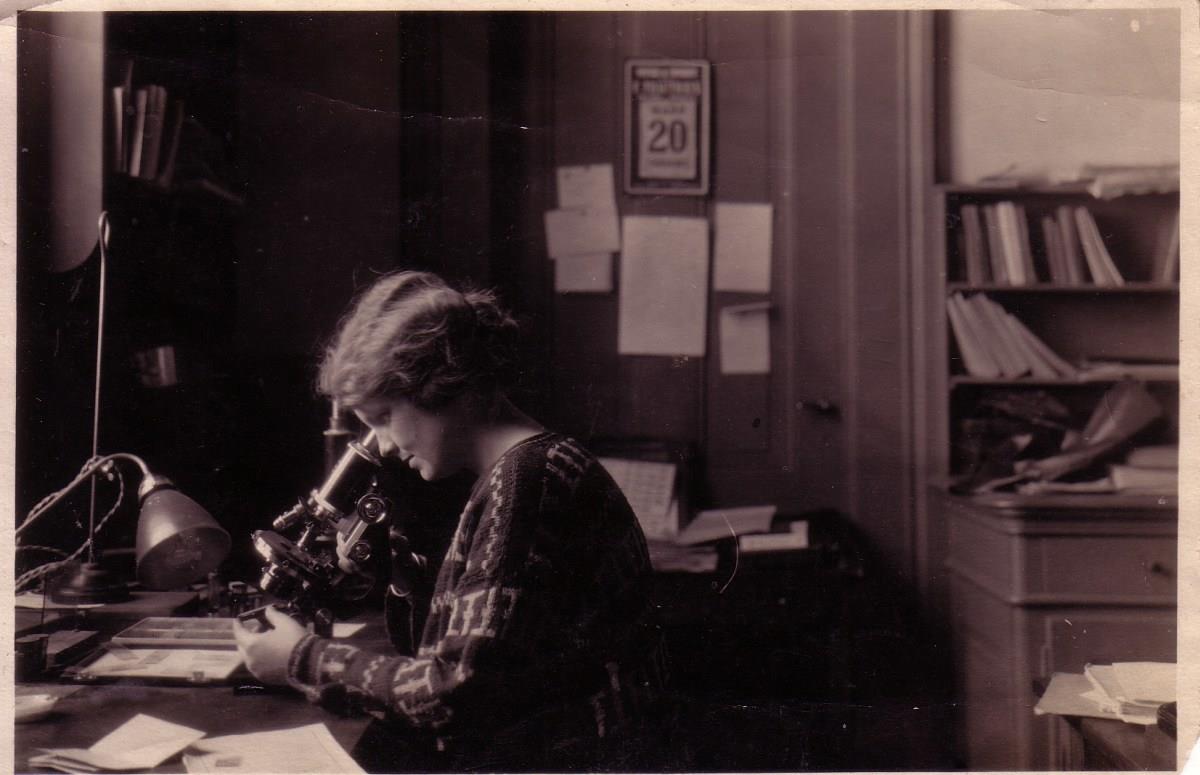
Ten Women Who Made International Geneva
Eglantyne Jebb (1876–1928), an English-born philanthropist, left an indelible mark on Geneva and the world through her tireless advocacy for children's rights. Born in Ellesmere, England, she founded the Save the Children Fund in 1919 to assist children affected by the devastation of First World War, regardless of nationality, religion, or race. Establishing herself in Geneva, she led the creation of the International Union for Child Welfare and authored the Declaration of the Rights of the Child (1924), later forming the foundation for the United Nations' modern framework for child protection. A trailblazer for humanitarian efforts, Jebb's work in Geneva transformed global approaches to children's welfare.
Eglantyne Jebb was the founder of the Save the Children Fund in 1919 and author of the 1924 Declaration of the Rights of the Child Creative Commons / savethechildren
Marie-Thérèse Maurette (1890–1989), born in Paris, was a pioneering educator and a key figure in Geneva's international education landscape. After studying progressive teaching methods in London, she co-founded one of France's first kindergarten programmes before moving to Geneva in 1924. There, she became the director of the École Internationale de Genève, the world's first international school, in 1929. Over two decades, she championed bilingual education, co-education and international history courses, promoting a curriculum focused on peace education aligned with the ideals of the League of Nations. Her post-war contributions extended globally, including work with UNESCO on international history textbooks. Maurette's innovative approaches to education left a lasting legacy in Geneva.
Physician and biochemist Lina Stern was the first woman appointed as a professor at the University of Geneva in 1918. Creative Commons
Lina Stern (1878–1968), a Latvian-born physician and biochemist, was a trailblazing scientist and the first woman appointed as a professor at the University of Geneva in 1918. Born into a Jewish family in Liepāja, Latvia, she moved to Geneva in 1898 to study medicine, earning her doctorate in 1903. Stern's pioneering research on cellular respiration, brain function and cerebrospinal fluid garnered her international acclaim. Despite facing antisemitism and xenophobia that hindered her advancement in Geneva in academic circles, she continued her work in the Soviet Union, where she led groundbreaking studies on infectious diseases and trauma and became the first woman elected to the Soviet Academy of Sciences. Her later years were marred by persecution under Stalin's regime, including imprisonment and exile, but she was ultimately rehabilitated and continued contributing to science. Stern's legacy endures in Geneva, where her name adorns a university hospital building, honouring her achievements.
Elna Palme Dutt (1891–1982) was a statistician and long-time civil servant at the ILO in Geneva. ILO Historical Archives, Geneva
Elna Palme Dutt (1891–1982), born in Cambridge to a Swedish mother and an Indian father, was a statistician, translator and long-serving international civil servant at the International Labour Office (ILO) in Geneva. Educated in mathematics and economics at the University of Cambridge, she initially pursued research in statistics before joining the ILO in 1921. Over three decades, she advanced from statistical clerk to editor-in-chief of the International Labour Review, playing a vital role in promoting labour rights and justice worldwide. Despite her contributions, she faced systemic gender discrimination, remaining unable to attain leadership positions. Recognised for her humanitarian work with Sweden's Illis quorum medal,
which rewards outstanding contributions to Swedish culture, science or society, she retired in 1951 and continued social advocacy, including transcribing books into braille. Her career exemplifies the achievements and challenges of pioneering women in international organisations.
In 2019, in partnership with a feminist association called l'Escouade, the city of Geneva added a hundred nameplates celebrating women next to the official street signs. 100elles / creative commons
Kitty Ponse (1897-1982), a pioneering Swiss-Brazilian biologist, was a key figure in the study of genetics and endocrinology. Born in Sumatra and raised in Geneva, she became known for her groundbreaking work in sex determination and hormone research. In the 1940s, she was appointed to teach at the University of Geneva, where she contributed significantly to the development of endocrinology. Her work on amphibians helped shape new perspectives on sex differentiation, earning her several prestigious awards. Ponse's research was internationally recognised, and she was active in scientific circles in Geneva throughout her career.
Russian political activist and journalist Ekaterina Kouskova opposed authoritarian rule. Creative Commons
Ekaterina Kouskova (1869–1958), a Russian political activist, journalist and intellectual, was a leading figure in opposition movements against tsarist autocracy and later Soviet totalitarianism. Born in Ufa, Russia, she began activism in her teens, embracing populist ideas before turning to Marxism and later aligning with liberal democratic causes. She played a critical role in various political movements, advocating for unity among leftist forces and supporting the Provisional Government during the Russian Revolution of 1917. After her opposition to the Bolsheviks led to her expulsion from Soviet Russia in 1922, she lived in exile across Europe, eventually settling in Geneva. There, she became a prominent voice in the Russian émigré community, contributing to major Russian-language publications and debating strategies for engaging with the Soviet regime.

Legal Disclaimer:
MENAFN provides the
information “as is” without warranty of any kind. We do not accept
any responsibility or liability for the accuracy, content, images,
videos, licenses, completeness, legality, or reliability of the information
contained in this article. If you have any complaints or copyright
issues related to this article, kindly contact the provider above.
















Comments
No comment